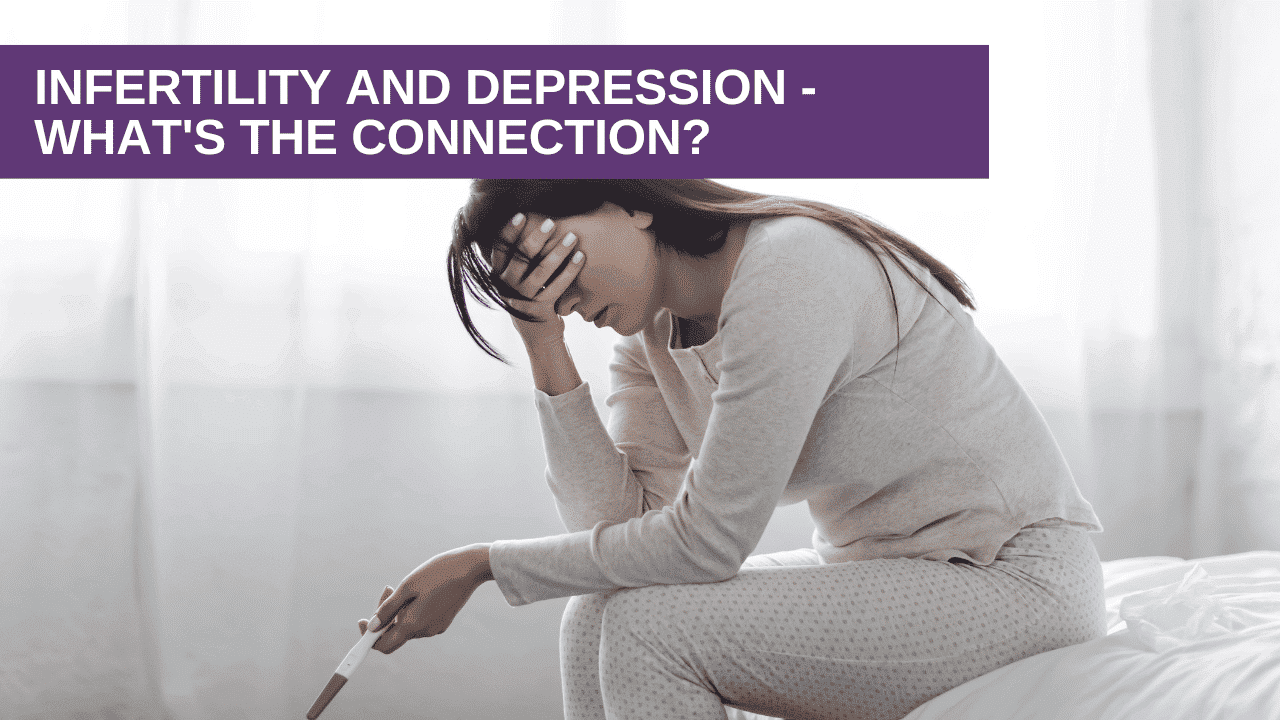Is there a connection between infertility and depression? Let’s talk about it.
When you’re having trouble getting pregnant, it can have a lot of psychological impacts.
Depression and anxiety are incredibly common for infertile couples.
Infertility is defined as the inability for a couple to conceive after 12 months of regular intercourse in women that are under the age of 35 and six months in women that are over the age of 35. Infertility affects 12% of women aged 15 to 44 and about 9% of men between 25 and 44 years of age. In 35% of infertile couples, infertility is both male and female factors. Oftentimes a woman will feel that her body is betraying her. It can be very depressing to get your period month after month when you’re trying to conceive. And devastating to lose a pregnancy. If you have a history of depression, you’re more likely to suffer depression when you’re infertile.
Depression and anxiety can be on the same spectrum with the same neurotransmitters affected causing either or both reactions. Depression can look different in different people. Some people going through infertility and especially with infertility services, suffering over failed IVF over and over again, can become suicidal. So it’s really important that we address mood disorders in infertile couples. Women who are infertile can often feel isolated which can further compound their depression.
Unless there’s a mechanical issue or an immune issue, most often your infertility is caused by a hormonal issue.
When your hormones are out of balance, your neurotransmitters will be out of balance. Progesterone has a calming effect helping you to produce more GABA. And if you don’t ovulate regularly, you don’t make enough progesterone. Estrogen helps you to produce serotonin. If your estrogen is out of balance you may produce too much or too little serotonin which leads to anxiety and depression.
Assessing a couple’s mental health is really key to helping them manage infertility with the best state of mind. We don’t want them so stressed and worn out by the process, that the pregnancy itself becomes difficult. It’s interesting how often couples give up on infertility treatments, maybe sign up to adopt a child and then get pregnant! Sometimes it’s the stress of going through infertility treatments that may be suppressing their ability to conceive. I’ve found that when I support my infertile couples’ hypothalamus with Genesis Gold®, they calm down, they’re much less stressed, and their hormones get into better balance. And most of them will conceive within six months.
That’s because the hypothalamus controls not only your moods by directing your neurotransmitters, but it controls reproduction and all your hormones. Providing the couple with emotional support and counseling can be very effective. Recent research has documented the efficacy of psychological interventions in lowering psychological distress as well as being associated with significant increases in pregnancy rates.
If you’re interested in learning more about how your hypothalamus affects fertility and depression, please sign up for my free Hormone Reboot Training.
Research Reference:
The prevalence of depression symptoms among infertile women
The relationship between stress and infertility
A survey of the relationship between anxiety, depression – NCBI › articles › PMC534113



0 Comments